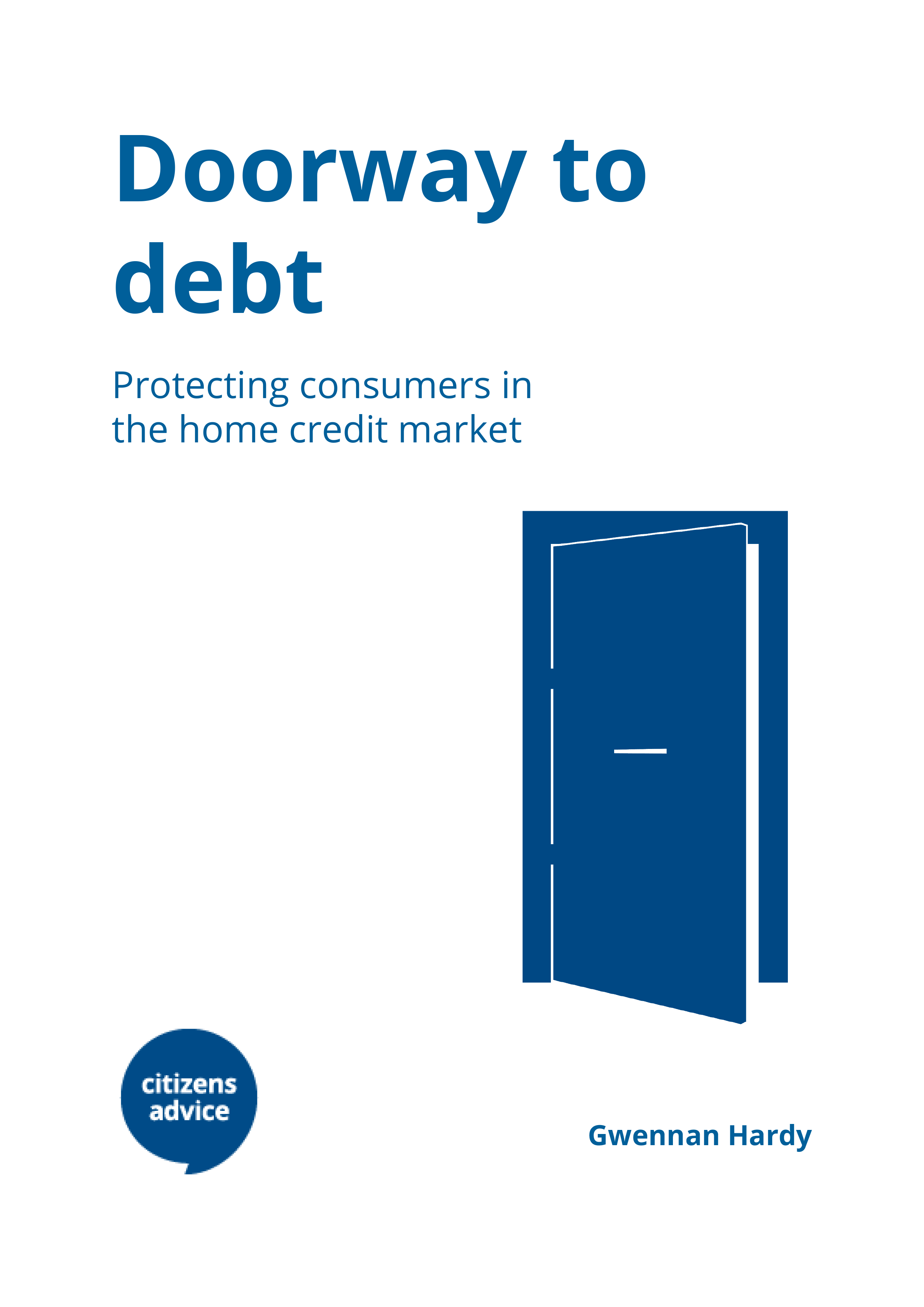Doorway to Debt
Home credit is one of the largest high-cost credit markets in the UK, with more than than 1.6 million customers. It is also the form of high-cost credit used most commonly by clients who come to us for help with their debts. Our new report 'Doorway to Debt [ 270 kb]' highlights that Citizens Advice helped an estimated 30,000 people who were struggling with home credit debts last year.
 Problems in the home credit market fall disproportionately on the most vulnerable within society. Our analysis of client data shows that people who are struggling with home credit debts are particularly likely to be in vulnerable circumstances. Clients are typically female, out of work, on low incomes, and living in social housing. Nearly half (48%) have a long-term health condition or disability, compared with 18% of adults in England and Wales. Many are behind on household bills like council tax or water rates.
Problems in the home credit market fall disproportionately on the most vulnerable within society. Our analysis of client data shows that people who are struggling with home credit debts are particularly likely to be in vulnerable circumstances. Clients are typically female, out of work, on low incomes, and living in social housing. Nearly half (48%) have a long-term health condition or disability, compared with 18% of adults in England and Wales. Many are behind on household bills like council tax or water rates.
While home credit borrowing can be a lifeline for many customers, evidence from our advisers suggest that, for clients like these, unaffordable home credit loans contribute to worsening financial situations. Our research highlights three key factors which lead to poor outcomes for consumers:
-
Some clients are offered loans which are unaffordable. Citizens Advice regularly sees cases where clients who are already struggling to keep up with debt repayments are provided with additional credit.
-
Customers are taking on multiple loans. A third (34%) of home credit clients had outstanding debt on two or more home credit loans.
-
Loan refinancing is causing costs to spiral. We estimate that customers can end up paying more than double what they originally borrowed in interest on up to 490,000 home credit loans.
We are calling on the Financial Conduct Authority (FCA) to extend its definition of high-cost short-term credit to include home credit loans.
The FCA’s regulation of payday lending has been one of its big successes - consumers are paying less for loans and more are able to repay on time. Removing the exclusion which omits home credit from these regulations would provide valuable consumer protections to home credit users, by:
-
Limiting the number of times each loan can be refinanced
-
Ensuring consumers never pay back more than twice what they borrowed
We estimate that, were existing loans to be priced down to this cap, it could save consumers up to £123m on up to 540,000 loans.

